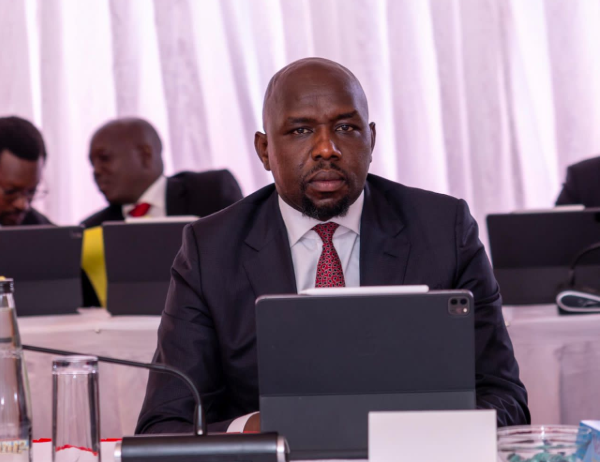From BBI to jailing DCI boss Kinoti: Court cases that shook the nation in 2021

As 2022 starts, 2021 will be best remembered for some of the good and wrong reasons, especially regarding some of the sensational cases in the corridors of justice that shook the conscience of the nation.
While Kenya struggled with the spectre of a pandemic at the beginning of the year and months of strict lockdown, there were some court cases that dominated headlines, drawing room discussions and social media.
BBI
Among the shocking stories of 2021 from the courts was the Building Bridges Initiative (BBI), where a special five-judge bench at the High Court of Kenya at Nairobi on May 23 declared unanimously that the Constitution of Kenya (Amendment) Bill, 2020 was unconstitutional.
The decision by the High Court to declare the BBI unconstitutional has since been upheld by the Court of Appeal. However, the State being aggrieved by the two courts’ decision has since filed an appeal at the Supreme Court which is set to be heard from January 2022.
Aggrey Muchelule and Said Chitembwe
In July 2021, another matter that grabbed national headlines was when two High Court judges were arrested in their chambers over allegations of bribery.
The arrest of the judges Aggrey Muchelule and Said Chitembwe saw anger and condemnation from the public even as the pair launched a fightback to stop any further action by the Director of Criminal Investigations (DCI) to prosecute them.
Justices Muchelule and Chitembwe got a court order stopping the DCI from summoning, arresting or prosecuting them over bribery allegations even as Chief Justice Martha Koome said she was kept in the dark about the investigations and arrests of the two judicial officers.
Sankale and Tob Cohen murder
However, Court of Appeal judge Sankale ole Kantai also made headlines when the DCI laid bare in court how he actively participated in the planning and cover-up of the murder of Dutch businessman Tob Cohen.
A detailed affidavit filed at the High Court by the DCI revealed how judge Sankale fully participated in the murder of Cohen by helping her mistress Sarah Wairimu Kamotho to cover up.
The judge who has since not been prosecuted is alleged to have held several secret meetings with Wairimu where they planned on how to murder Cohen and later cover up the same.
In a bid to cover up their tracks, the two lovebirds met in various places, dates and locations where they planned the murder of Cohen whose body was found inside his compound in a septic tank at his Kitusuru Estate in 2019.
Following the revelation linking the judge to the murder of the tycoon, cracks continued to deepen between the DPP and DCI over the prosecution of Justice Sankale. This led to various cases in court and petitions at the Public Service Commission seeking the removal of the prosecuting boss in the country.
Huduma Namba
Far from that, a case that also reignited debate in the country was the shocking ruling by the High Court on October 14 declaring the famous Huduma Namba invalid after ruling that the law wasn’t followed in its roll-out.
In his decision, Justice Jairus Ngaah ruled that the government failed to conduct data impact assessment before rolling out the cards in November last year, contravening the constitution in the process. The state was warned against compelling Kenyans to be registered to get the new number including taking DNA samples from anyone during the registration process.
This followed a suit by Law scholar Yash Pal Ghai and Katiba Institute who filed a case in November 2020, challenging the roll-out of the cards over lack of guarantee against theft or misuse of Kenyans’ personal information.
The lobby group argued that the government failed to subject the fresh registration of Kenyans to data protection impact assessment (DPIA), a requirement under the law. Currently, the majority of Kenyans have received Huduma Namba cards after the rollout of the same last year.
Executive order number 1 of January 2020
Another court case that captured local headlines that was decided by the courts on gaps and possible ambiguities in the constitution concerns was on the Executive order number 1 of January 2020 issued by President Kenyatta placing the country’s Judiciary under his authority.
The ruling by the High Court dealt a heavy blow to President Uhuru Kenyatta’s administration and political structure.
Degree requirement for MCAs
On October 15, 2021, there was another judgment by Justice Antony Mrima which overturned a law by Parliament requiring all MCAs to have a university degree in order to vie for the 2022 general elections.
In his ruling, Mrima declared the amendment of the Election Act by Parliament in 2015 unconstitutional saying that it is unfair and discriminatory to bar MCA aspirants without university degrees to contest.
Parastatal appointments
On May 27, the High Court, in another judgment by three judges, declared the President’s June 2018 parastatal appointments unconstitutional.
The three judges made the declaration that the appointments by the Head of the State, which featured key political losers and former government officials, were made in an opaque manner, therefore, invalidating them.
Some of the prominent names in the appointments were Retired Chief of Defence Forces Gen Julius Karangi, former Kenya National Union of Teachers (Knut) chairman Mudzo Nzili, former Mombasa gubernatorial candidate Suleiman Shahbal, former governors Benjamin Cheboi (Baringo), Doyo Godana (Isiolo) among other individuals.
CASes
In April, the President’s administration was dealt another heavy blow after High Court judge Mrima also declared the position of Chief Administrative Officer (CAS) initiated in 2017 unconstitutional.
Maj-Gen Badi
In September the High Court locked Director-General of Nairobi Metropolitan Service Maj-Gen Mohammed Badi out of the Cabinet.
Justice Mrima quashed Badi’s appointment to the cabinet and barred him from attending meetings called by either the cabinet committees or for full cabinet meetings.
He quashed Executive Order No. 3 of 2020 and declared Badi’s appointment into the cabinet unconstitutional.
DCI Kinoti to be jailed
DCI boss George Kinoti also made headlines when the High Court judge Mrima ordered to have him jailed for four months in prison for contempt of court.
The DCI chief fought endlessly to have the orders set aside until December 15 when the court of appeal temporarily suspended the jail term until April 1, 2022.
Throughout the year, we also saw top senior government officials make headlines after being convicted and sent to jail for corruption offences.
Among those who were convicted are former Sports Cabinet Secretary Hassan Wario and his co-convict former National Olympic Committee of Kenya (Nock) official Stephen Soi and former director of the Kenya Medical Research Institute (Kemri) Davy Koech.













